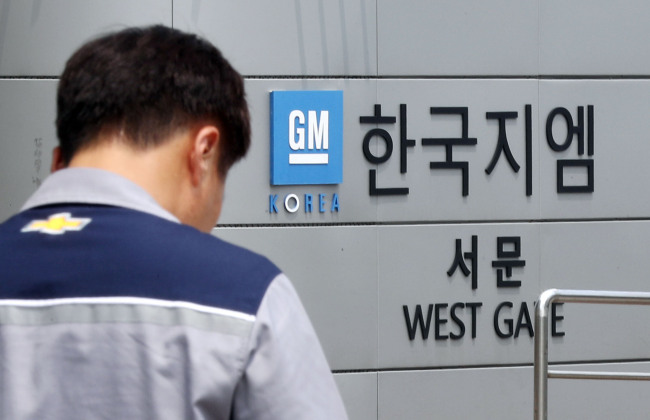South Korean carmakers plagued by labor disputes, poor sales
By Korea HeraldPublished : July 7, 2017 - 11:21
Carmakers in South Korea are likely to face worker strikes again this summer, as fears mount that the strikes will deal a severe blow to their already faltering businesses hit by poor sales, emerging protectionism and diplomatic disputes.
Unionized workers at Hyundai Motor, the nation’s largest carmaker, said Thursday that an annual wage negotiation they had been engaged in with the management for the last two months had collapsed, and the group will hold a vote next week to make a decision on staging a walkout.
The move came less than a week after another union at its sister company Kia Motors declared a breakdown in negotiations, rejecting the management’s offer of a wage increase.
The situation at GM Korea, the South Korean unit of General Motors, is also unusual.
Unionized workers at Hyundai Motor, the nation’s largest carmaker, said Thursday that an annual wage negotiation they had been engaged in with the management for the last two months had collapsed, and the group will hold a vote next week to make a decision on staging a walkout.
The move came less than a week after another union at its sister company Kia Motors declared a breakdown in negotiations, rejecting the management’s offer of a wage increase.
The situation at GM Korea, the South Korean unit of General Motors, is also unusual.

The labor union there has already requested arbitration from a tripartite labor dispute commission. But the union is likely to go ahead and hold a vote to ask members to go on strike, according to sources. GM Korea’s labor union has demanded the company raise workers’ monthly basic wages by 50,000 won ($43) and pay a 9 million won bonus per worker, which the company sees as an excessive demand. Separately on Monday, GM Korea said its CEO James Kim will step down from his post on Aug. 31, without naming a successor.
GM Korea has also been facing rumors that it would withdraw its business in Korea as the carmaker no longer sees its operations in Korea as attractive due to rising labor costs and growing operations losses. Over the past three years, GM Korea has posted a combined 2 trillion won in net losses -- 350 billion won in 2014, 986.8 billion won in 2015 and 631.4 billion won in 2016. GM Korea, which is 76.9 percent owned by GM, has three plants here capable of producing a combined 750,000 units a year. GM Korea’s sales accounted for 6 percent of the US carmaker’s global sales of 9.96 million units last year, the company said.
It is common for labor unions to stage walkouts in South Korea. But companies and market insiders have raised concerns over the possibility of them taking more drastic actions or staging lengthy walkouts this year, believing the new administration led by President Moon Jae-in, a former human rights lawyer, could be on their side.
The impact of labor unions’ industrial action is expected to be harsher this year, as the carmakers are finding no more room to increase pay.
Both production and sales by carmakers operating in South Korea have rapidly declined, putting Korea’s title as the world’s sixth-largest automobile producer at risk.
According to the Korea Automobiles Manufacturers’ Association, “made in Korea” cars took a 5.8 percent market share in the US, China and Europe on average in the first five months this year, down from 7.7 percent in 2012. The decline in global market share was largely due to poor sales in China, which Korean carmakers see as a result of retaliatory action over Seoul’s decision to deploy a US anti-missile system on the Korean Peninsula. Hyundai and Kia saw their sales in China halve in March, before falling further in April and May.
The two plan to sell a combined 8.25 million units this year. In the first quarter, Hyundai and Kia sold 3.51 million vehicles, less than 40 percent of its goal, according to the company.
“With the company facing difficulties in sales in US and China, as well as its reputation in the domestic market, the union staging strikes could worsen a near-crisis situation at Hyundai Motor,” said an industry source, requesting anonymity.
By Cho Chung-un (christory@heraldcorp.com)
-
Articles by Korea Herald











![[Hello India] Hyundai Motor vows to boost 'clean mobility' in India](http://res.heraldm.com/phpwas/restmb_idxmake.php?idx=644&simg=/content/image/2024/04/25/20240425050672_0.jpg&u=)








